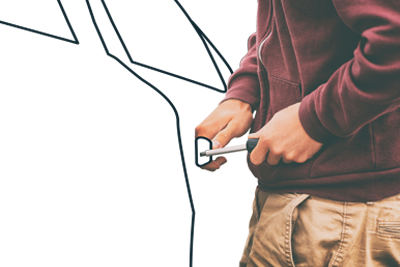
The rise in car crime – a grim reality for many UK motorists
By Paul Baxter, 7th June 2024
Category: Car insurance
Car crime, including vehicle theft, break-ins, and unreported damage, is a growing concern for UK motorists. Our new research has brought to light some troubling statistics: one in six (17%) UK car owners has been a victim of car crime in the last three years. This figure is even higher in London, where 34% of car owners have been targeted.
The perception of rising car crime is widespread, with 31% of Brits believing it has increased in their area over the past three years, compared to just 14% who think it has decreased.
Our findings reveal that typically car break-ins are the most common type of car crime reported, affecting 13% of respondents. This is followed by malicious damage such as smashed windows or vandalised paintwork (8%), unreported damage by another vehicle (6%), theft of catalytic converters (4%), and slashed tyres (4%).
But Brits are fighting back with over half (56%) of car owners saying they are taking action to try and prevent their cars from being targeted. The most popular measure being taken is to install security cameras, with 22% of respondents taking this step. Other actions include using Faraday pouches to prevent key cloning (14%), installing tracking devices (14%), and using steering wheel locks (11%).
Unfortunately the rise in car crime is in part due to the growing sophistication of car thieves, who often use electronic devices to bypass keyless entry systems and target high-value parts like catalytic converters.
As car crime continues to rise, our findings reveal that UK motorists are becoming increasingly vigilant and proactive in protecting their vehicles. By adopting a combination of high-tech solutions and common-sense practices, such as never leaving keys in the ignition, ensuring their car is always locked, parking in well-lit areas, and keeping valuables out of sight, car owners can go some way to help reduce their risk of becoming a target.